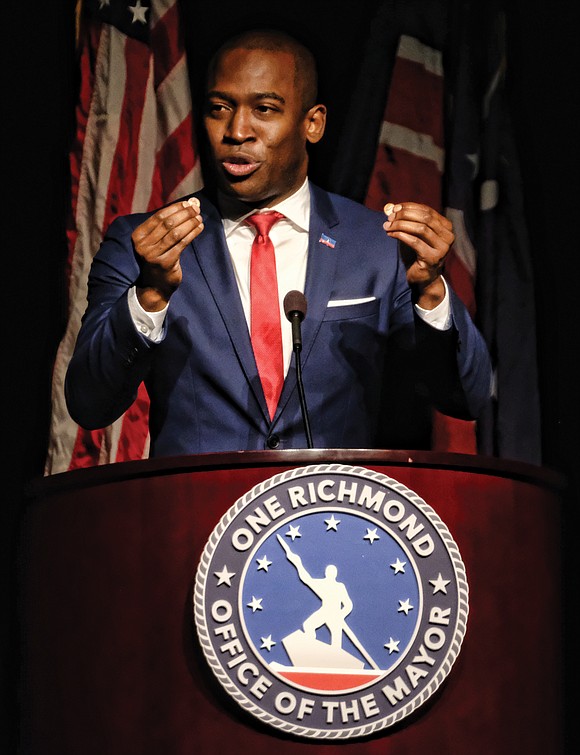Coliseum project expected to be key in mayor’s State of the City address
Jeremy M. Lazarus | 2/1/2019, 6 a.m.
The currently stalled $1.4 billion plan to have Richmond taxpayers build a new and bigger Richmond Coliseum as a way to attract new development to blocks near City Hall is anticipated to be a centerpiece of Mayor Levar M. Stoney’s second State of the City speech.
City Hall has so far been mum about the themes to be in the speech that the mayor is to deliver at 6 p.m. Thursday, Jan. 31, at the Virginia Museum of History & Culture on the Boulevard.
However, an aide to the mayor dryly noted that the Coliseum project “could be mentioned.”
Ahead of the speech, the mayor again failed on Monday to introduce any detailed legislation on the Coliseum proposal he rolled out in early November, but has yet to advance to City Council.
However, the likelihood that it will be front and center advanced this week after City Council joined him in kicking the school construction issue down the road.
In a 9-0 vote, City Council endorsed a nonbinding resolution supporting the mayor’s plan to provide $800 million over the next 20 years as current debts are paid off and borrowing capacity becomes available — ensuring that the a fresh generation of largely African-American and Latino children will attend increasingly decrepit buildings for years to come.
Even 2nd District Councilwoman Kim B. Gray, who called the resolution “toothless,” voted for it.
Despite saying last week that she would oppose the resolution as inadequate, she said she decided she could not vote against a proposal that could mean “more money for schools.”
The mayor introduced the proposal as a way to meet a new City Charter requirement that he, in consultation with the council, the School Board and the public, would come up with a fully funded plan to modernize all of the city’s school buildings.
The requirement stemmed from a referendum that received 85 percent support from the voters in 2017.
Paul Goldman, who led the effort to get that charter requirement on the ballot, said after Monday’s vote, “I’m profoundly disappointed with Mayor Stoney and professed City Council leaders … for their professed Trump Wall Street-style political game playing” on the issue of modernizing public schools.
“The so-called school modernization plan proposed by the mayor and rubber stamped by the council is just the latest in 64 years of political ‘wolf tickets,’ as the saying goes,” said Mr. Goldman, a former Virginia Democratic Party chairman who heads the Put Schools First campaign.
“What must a sincere guy do to get RVA’s politicians to fix school facilities that deny equal educational opportunities” for mostly children of color.
Instead of spelling out a schedule of school construction and the amount it would take, the mayor’s plan simply would add funding down the road without offering any specifics.
The plan builds on the $150 million that the city expects to generate from increasing the meals tax by 1.5 percent that was approved this year. About $110 million of that has been earmarked to pay for two replacement elementary schools, George Mason and Greene, and a new Elkhardt-Thompson Middle School.
None of the new bond capacity would become available until at least 2025, or after Mayor Stoney has left office, even if he is re-elected to a second term.
City Council never held any hearings to find out if $800 million would be adequate.
A new independent report indicates that a School Board proposal suggesting that school modernization might cost $800 million missed the mark by failing to properly calculate inflation.
The report indicated the actual cost of the board’s suggested plan — which leaves out the Technical Center and facilities for disabled children like Amelia Street School — would be around $937 million when inflation is properly included.







